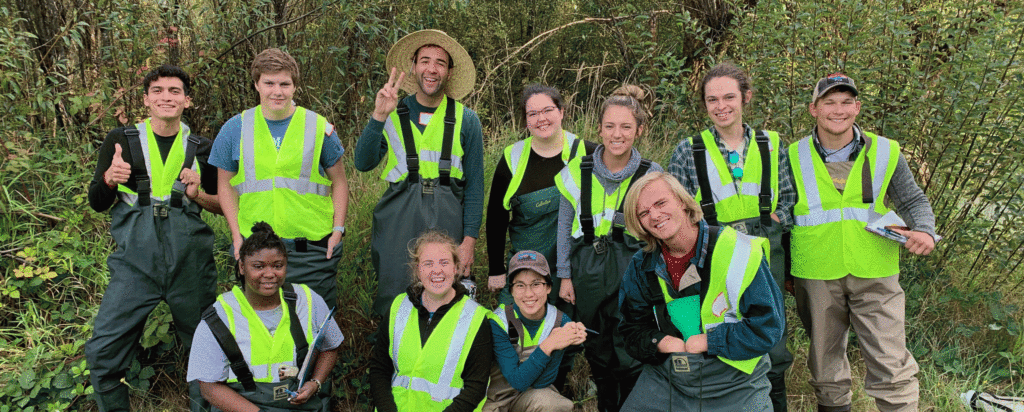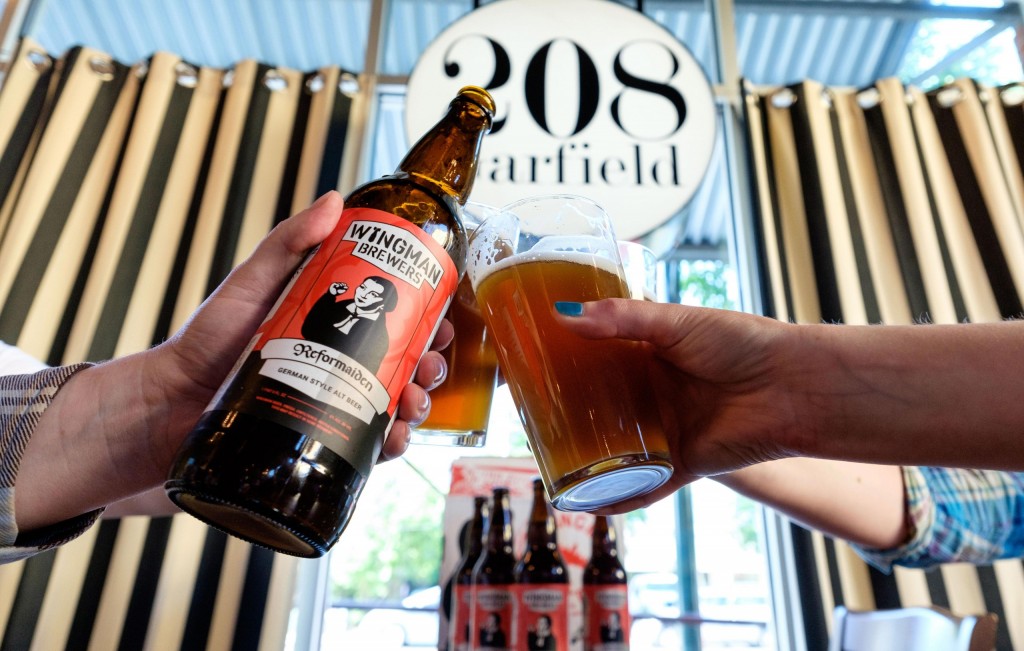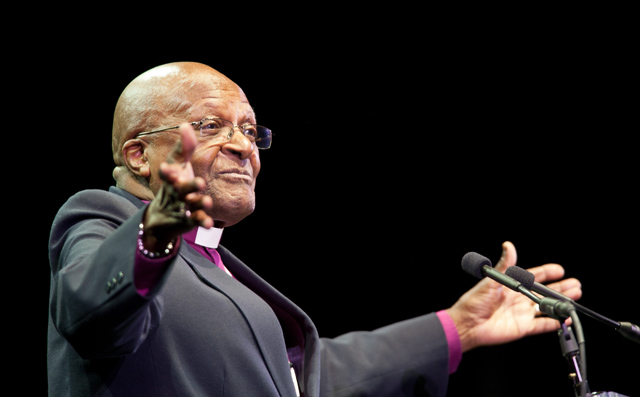Page 41 • (13,862 results in 0.043 seconds)
-

At Pacific Lutheran University, natural science research can lead students all the way to Antarctica and back again. For environmental studies majors, there’s also important data to collect and analyze within a stone’s throw of the university’s campus. Clover Creek flows 14 miles through Parkland,…
infamous Friday lab sessions! Does the process differ in the spring and fall semesters? Seasonal changes in the watershed have a big impact on what students do in the fall class versus the spring class. In the fall, many locations in Clover Creek are completely dry, and this past fall one of our typical sampling locations had a toxic algae advisory. In some spring semesters, sampling locations may have too much water, making it unsafe for students to enter the stream. So our sampling plan is always
-
The University of Nebraska is now accepting applications for the 2018 Summer Research Program. The 10-week residential summer research experience provides mentoring and research participation while allowing scholars to preview graduate school life at a research university. Participants all receive competitive stipends, room and board, travel/transport,…
Summer Research Opportunities at the University of Nebraska Posted by: alemanem / November 29, 2017 November 29, 2017 The University of Nebraska is now accepting applications for the 2018 Summer Research Program. The 10-week residential summer research experience provides mentoring and research participation while allowing scholars to preview graduate school life at a research university. Participants all receive competitive stipends, room and board, travel/transport, graduate school
-
Zubrod tallied a double-double in both matches last week as the ninth-ranked Lutes remained undefeated in NWC play. Zubrod has 21 assists and 12 digs in a 3 set win over Puget Sound before collecting 14 assists and 12 digs in a 3-0 win over…
Isabella Zubrod – Women’s Volleyball Athlete of the Week! Posted by: Julie Winters / April 30, 2019 April 30, 2019 Zubrod tallied a double-double in both matches last week as the ninth-ranked Lutes remained undefeated in NWC play. Zubrod has 21 assists and 12 digs in a 3 set win over Puget Sound before collecting 14 assists and 12 digs in a 3-0 win over Willamette. Averaged 4.0 digs/set and 5.8 assists/set while also adding 14 kills and three aces. Congratulations Isabella! Read Previous
-
by Lizz Zitron and Amy Stewart-Mailhiot There is often a sizable divide between what students actually know and their perception of what they know. There is an equally sizable divide between students’ high school academic experience and their college one. Both of these divides can…
Lutes on their confidence level and high school experiences in conducting research tasks. Like their upper class peers, the majority of New Lutes rated themselves as Confident or Very Confident in performing the various steps in the research process (e.g. choosing a topic, searching databases, evaluating sources). In spite of their high reports of confidence, few of the first year students we have seen during library sessions this fall know how to tell if a source is scholarly and have limited
-
by Patrick Wakefield Out With the Old The Lagerquist Concert Hall in Mary Baker Russel has been used for recitals and events since the building was constructed in 1997. While many people attend the events in the hall, few know of the work being done…
room since 2009. Initially the room only recorded audio, but fifteen years later iTech (Instructional Technologies) upgraded the room for digital distribution. Since the upgrade, we have streamed HD video and audio for over 125 concerts and events. In order to keep up with this growing demand, we are continuing to upgrade audio hardware over the next few months. This blog post is the first of a two-part story on the latest upgrade, focusing on installation preparation. In With the New! Planning
-

If the raised fist on the bottle is any indication, Reformaiden beer makes a statement. The German, alt-style beer — boasting a cloudy caramel color and a subtle malt flavor — immortalizes Katharina von Bora, the woman who stood beside and, in many ways, propped…
Commemorative PLU brew celebrates 500 years of the Reformation Posted by: Lace M. Smith / June 14, 2017 June 14, 2017 By Kari Plog '11 | Video by Rustin Dwyer with additional footage from John FroschauerPLU Marketing & CommunicationsIf the raised fist on the bottle is any indication, Reformaiden beer makes a statement. The German, alt-style beer — boasting a cloudy caramel color and a subtle malt flavor — immortalizes Katharina von Bora, the woman who stood beside and, in many ways, propped up
-
Helen Jensen arrived at Pacific Lutheran College in 1945 from her hometown of St. Helens, OR; Dick arrived a year later in 1946 after a year of service in the Marine Corps.
a regular at summer Jazz Under the Stars concerts on campus. In 2016 Dick moved to Pullman, WA, where he lived with daughter Karen Weathermon and grandson Peter Richard Weathermon Smith until his death in February of 2019. This endowment recognizes Dick and Helen’s mutual love of jazz as well as their attachment to PLU. Dick relates that Helen was known to hide a radio under the covers in her room in Old Main (now Harstad Hall) so she could listen to Jimmy Lyon’s nightly midnight jazz broadcast
-

Archbishop Desmond Tutu spoke to a crowd of 15,000 at the Tacoma Dome urging them to change their world for the good, one act at a time. Tutu urges 15,000 in Tacoma Dome to be the spark that changes a community, a life. By…
May 15, 2011 Archbishop Desmond Tutu spoke to a crowd of 15,000 at the Tacoma Dome urging them to change their world for the good, one act at a time. Tutu urges 15,000 in Tacoma Dome to be the spark that changes a community, a life. By Barbara Clements If you see people who are hungry, feed them. If they need pants, give them a pair. After all, Levi’s are not just going to float down from above. And, in the end, our humanity is ultimately defined by our relationship to each other. These clear
-
Each year, the PLU Division of Humanities puts together a collection of stories into Prism, offering a few reflections of the great work our faculty do in classrooms and beyond. This year’s stories will introduce you to a new Philosophy professor , a Nordic Studies…
to know faculty scholarship as it happens on twitter and in the archives of Yale, and read about a student-faculty collaboration focused on ultrarunning and religion. You will read about the political work of some of our English faculty and their families, and you will learn from a conversation about teaching between two of our Language instructors. Finally, you can read my update on our Classics program. A new aspect of Prism this year is that our students have taken a larger role in producing
-
Dedicated to the man who named The Crime with No Name Click here for more info and deadline for submissions Through the efforts of PLU Alumnus and Regent, Donald R. Morken, and a colleague, Mr.
outlaws destruction of races and groups. The Raphael Lemkin Trust, founded by Mr. Irving Young of Haifa, Israel, helps to support the prizes and scholarships. The prizes serve to inspire young people to reflect upon the issue of genocide and to inform them about Raphael Lemkin. Pacific Lutheran University invites its’ students to write and submit (approximately in February) essays on the topic of genocide. A panel of faculty members judge the essays and awards first and second prize winners the
Do you have any feedback for us? If so, feel free to use our Feedback Form.


